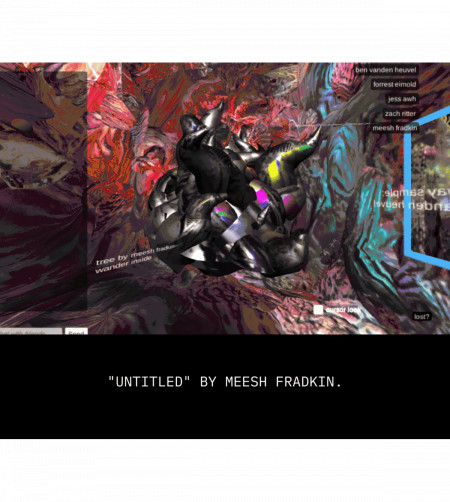Disability Innovation in Art and Technology

OAKLAND, Calif., November 8, 2021 (Newswire.com) - Leonardo/ISAST announces CripTech Incubator's inaugural cohort of six disabled artists, who have been selected to create and showcase innovative work in art and technology at residency sites across California. Leonardo's artist fellows include: Carmen Papalia, Olivia Ting, Josephine Shokrian, Meesh Fradkin, Andy Slater and moira williams. Supported by the California Arts Council, CripTech Incubator is an art-and-technology fellowship centered on disability innovation. Encompassing residencies, workshops, presentations, publication and education, this innovation incubator creates a platform for disabled artists to engage and remake creative technologies through the lens of accessibility.
- Carmen Papalia, RadMad Disability Lab at UC Berkeley, "Pain Pals Character Creator," a video game character creator where those with pain conditions can identify themselves and their experiences in an affirming, non-medicalizing setting.
- moira williams, RadMad Disability Lab at UC Berkeley, "Crip'd Fleets Overflows + Disruptions," through co-creating an accessible mobile water-lab, explores how ecologies of access intimacy and water intimacy inform and shape policies of accessible ways to the water.
- JS Shokrian, Beall Center for Art and Technology at UC Irvine, "EM" or e-motion is a prosthetic device that relays sonic information as haptic emanations.
- Olivia Ting, Thoughtworks Arts, "Song Without Words," a spatial audiovisual investigation of parallels between gestural language, visual vocabulary of ASL and music conducting.
- Andy Slater, Thoughtworks Arts, "Unseen Sound," an AR spatial audio design app created for blind and non-visual users.
- Meesh Fradkin, Santa Barbara Center for Art, Science and Technology, "Accessibility as design," Accessibility in sound art and immersive media.
Within disability culture, the term "crip" recognizes disability as a valued cultural and political identity. But "crip" also identifies an active practice of resistance whereby disabled makers and artists hack environments or technologies, transforming them to be more accessible and inclusive. Cripping new media can engender groundbreaking forms of representation, storytelling, and world-building.
By integrating radical access as creative practice across Leonardo/ISAST's wide-ranging suite of international programs, CripTech Incubator aims to transform the larger field of media art and technology. "Leonardo's CripTech Incubator artists embody the best of human ingenuity and imagination," said Diana Ayton-Shenker, CEO, Leonardo/ISAST. "We embrace radical access to amplify networks and incubate ideas with the potential for game-changing positive impact."
CREDITS
Partnership with Thoughtworks Arts (San Francisco), RadMad Disability Lab (UC Berkeley), Beall Center for Art and Technology (UC Irvine), Santa Barbara Center for Art, Science and Technology, Ground Works with A2rU, Gray Area Foundation for the Arts, Arizona State University and publication with MIT Press. It is supported by the California Arts Council Intersections + Innovations grant.
Organizers
Vanessa Chang, Lindsey Dolich Felt, Danielle Siembieda, Claudia Alick
Source: Leonardo/ISAST
